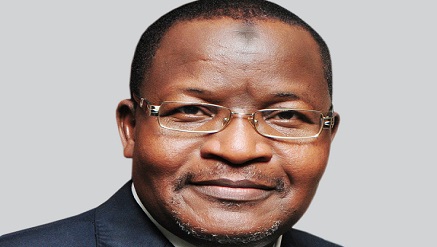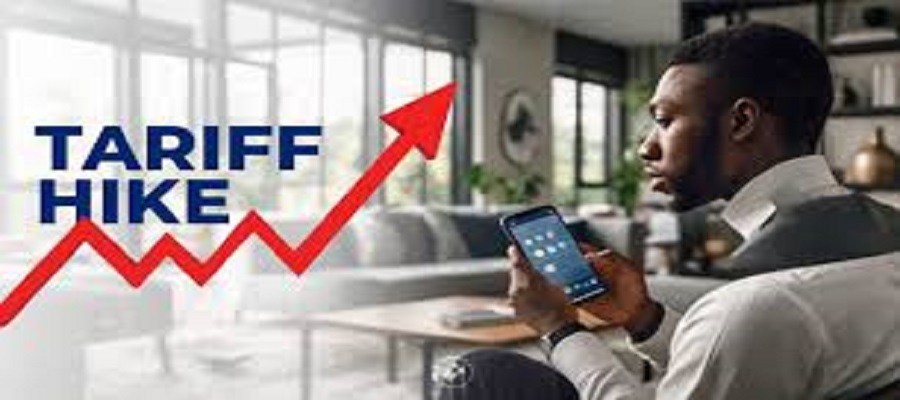Telecom
Reforms, New Policies Required To Drive Telecoms Sector- Experts

The liberalisation of the Nigerian telecommunications sector almost two decades ago, catalysed and opened up the sector to local and foreign direct investment (FDI) estimated at over $68 billion as at November 2016.
The sector is currently considered a key contributor to economic growth and one that can help lift Nigeria out of recession; created approximately over 2.5 million jobs over the past 10 years, with its impact reaching across all industries.
Until June 2016, the telecoms sector was growing rapidly and comprised 9.8% of Nigeria’s GDP but this growth has now stalled, with the sector at a strategic crossroads.
However, experts in the industry believe that several factors have converged simultaneously, which could materially impact the industry and undermine its potential to drive economic growth and stimulate the Nigerian economy as a whole hence reforms and new policy directions are needed.
The weak Naira, the experts pointed out, has made the importation of much needed telecom equipment into the country difficult, and the upgrading of towers and service capacity expansion too expensive to conduct on a large scale.
Operators are now either deferring or delaying upgrades or expansion of their networks and customers are starting to feel the impact.
Lending his voice to the calls for the review of certain policies in the industry, Engineer Gbenga Adeabyo, chairman of the Association of Licensed Telecommunications of Nigeria (ALTON), cited the Abuja masterplan as not giving room for deployment of telecommunications base stations.
He said the situation is capable of impacting signal quality, increase in incidences of dropped calls, and overall customer service quality decline.
Engr. Adeabyo holds the view Nigerian consumers have every right to demand more and should never have to settle for poor network quality or services.
Mr Olusola Teniola, president of the Association of Telecommunications Companies of Nigeria (ATCON), told Nigeria CommunicationsWeek, “A drastic change is required in the manner the industry is regulated by NCC and as the CJN recently noted, the Nigerian Communications Act 2003 is now outdated and needs immediate review to encompass latest regulatory thinking on matters that properly addresses the data centric world that we find ourselves in and propagates a converged regulatory environment focused on latest technological themes and not just on how voice calls are meant to be regulated”.
To further compound matters for operators, consumers continue to move away from legacy voice services and are switching to data bundle packs, which allows them use over the top (OTT) service providers such as WhatsApp, Skype and Facebook to make phone calls inexpensively over broadband connectivity not minding the often poor quality of these services.
While it’s clear that the simple solution to addressing this trend is massive investment into telecom tower network densification, as new 3G and 4G technologies are rolled out, these network upgrades can only be done if there is adequate financing and a suitable business case.
The recent default status of Etisalat Nigeria, is a prime example of how it can all go wrong. Etisalat is/was the fourth largest telecom operator in the country, but as a direct result of the company’s razor thin margins on its current service offerings, and against the backdrop of the devaluation of the Naira, the company has failed to meet its obligations to its lenders.
Speaking on issues concerning the telecommunications sector, Fatai Folarin, Tax & Regulatory Services Lead Partner at Deloitte noted that, “The telecommunications industry in Nigeria is one that can currently be described as self-aware and steadily adapting to the stark realities of business – changing trends, intense rivalry, regulatory uncertainties etc.
“There is a general understanding that to remain sustainable, there is a need to recreate existing products, diversify into new areas for which the capabilities and resources are near, improve on general business processes and navigate through the regulatory landscape.”
To Mr. Teniola, the enabling environment is what the industry needs to thrive under any government in power “and this current administration is attempting to ensure that this environment is put in place to allow the private sector to contribute the innovative solutions and economic growth that will allow the citizens of the country to benefit from ICT advancements, the efficiency and productivity that this brings to the growth.
“On the flip side most the growth in ICT has always been driven by innovation from experts and products and services has always been ahead of policy decision making and will always lead the way as long as we are a nation of consumers of technology,” he said.
As the ATCON President pointed out, reforms should be all encompassing and address competition, markets and converged Services – finance, media, technology and telecoms are heavily intertwined and areas such as Fintech, mobile money, block-chain and Artificial Intelligence (AI) are disruptive in nature and impact business models across all verticals and therefore reform needs to be proactive as opposed to reactive in nature.
What are the expectations from telecom subscribers to drive quest for better policy and service delivery; again, Mr. Teniola said, “Subscribers are important, however, the Customer is King. Customers should demand that there are right choices that meets there every day needs and requirements.
“Getting a product cheap doesn’t mean that it is the best or gives the User Experience expected – so the Customer needs to continuously challenge the offerings that they are presented with and promote the services or products that provides their best Customer Experience based on quality and not just on being the lowest price.
“This way innovation is promoted and the industry becomes healthy in the long run and the Customer ultimately benefits through wider choice.
Telecom
Telecom Tariffs Set to Rise by 50 Percent as NCC Approves Adjustments

Nigerian Communications Commission (NCC) has announced that it will approve tariff adjustment requests by network operators, in response to current market conditions.

The adjustments, capped at a maximum of 50% of current tariffs, are lower than the over 100% requested by some operators.
These changes will remain within the tariff bands stipulated in the 2013 NCC Cost Study and will be reviewed on a case-by-case basis, adhering to the NCC Guidance on Tariff Simplification, 2024.
The adjustments aim to address the gap between operational costs and current tariffs, ensuring service delivery is not compromised.
They will support operators in investing in infrastructure and innovation, benefiting consumers through improved services and connectivity.
The decision was made after extensive consultations with stakeholders, balancing consumer protection and industry sustainability.
The NCC has mandated transparent implementation and public education on the new rates, with a focus on measurable service improvements.
The NCC remains dedicated to fostering a resilient, innovative, and inclusive telecommunications sector, supporting indigenous vendors and suppliers, and promoting Nigeria’s digital economy.
The Commission will continue to engage with stakeholders to create a telecommunications environment that works for everyone.
Telecom
Subscribers Reject Tariff Hike, Say FG Cannot Speak for Them

Telecommunication subscribers under the aegis of Association of Telephone, Cable TV and Internet Subscribers of Nigeria (ATCIS-Nigeria), at the weekend rejected the 30-60 per cent tariff increase proposed by Bosun Tijani, minister of Communications, Innovation and Digital Economy, insisting that there should be no increase for now.

ATCIS-Nigeria said Tijani cannot speak for them, saying there is no conclusion on the tariff increase yet.
Sina Bilesanmi, national president, ATCIS-Nigeria in a statement, said a tariff hike was not one of the issues agreed upon with the regulator in Abuja, wondering why the minister is interested in hiking tariffs to the detriment of struggling Nigerians still reeling under the impact of economic reforms.
He said the minister’s statement was contrary to the agreements reached between the Consumer Bureau Department of the Commission of the Nigerian Communications Commission (NCC) and stakeholders at a meeting convened on January 9, 2025, at the NCC headquarters in Abuja.
According to him, what was agreed upon at the January 9 Abuja meeting was that there would be no telecoms tariff hike for now until all the stakeholders, particularly the subscribers, are sufficiently enlightened and sensitised.
Recall that the minister, in a TV interview, had said even though the mobile network operators (MNOs) were demanding a 100 per cent increase to stabilise the sector, the government knew that such a level of increase would be harmful to the people.
On the threshold of the expected hike, he said: “I think it should not be more than anywhere between 30 to 60 per cent. We have already made it clear that we are not going to approve 100 per cent. These companies are asking for 100 per cent, stating clearly that this is what they believe they need to get.
“But what we are looking at in terms of the sector is that if this is the sector that is responsible for driving growth in our country, it will be harmful to our people to allow MNOs to increase by 100 per cent.”
However, Bilesanmi said it was not the duty of the minister to speak for tariff pricing, insisting that it is the responsibility of the NCC which has already started doing the consultation to do data-based empirical cost analysis.
He said the minister has no power to fix prices in a liberalised market.
“Our resolution was, one, that the telecom operators need to respect the telecom subscriber advocacy body and the act of NCC; that the NCC should tell the telcos to first meet with ATCIS being the telecom subscriber advocacy body for consultation, involvement, enlightenment, and engagement; that once telecom subscriber advocacy body agreed, it will call for public opinions on the per cent rate, and that ATCIS will then write NCC for approval, and anything outside of these may not work.
“As subscribers, we should be in collaboration with NCC because we’re the ones paying the money involved. We agreed at the meeting that there will be no hike but further deliberation and consultation on the issue with relevant stakeholders, especially the MNOs and the subscribers would continue.
“The MNOs, through their representatives (ATCON and ALTON), were supposed to organise an enlightenment/sensitisation programme to address the issues. The MNOs were supposed to discuss the percentage increment with the subscribers’ representatives after which it will be taken to the subscribers for discussion. At the end of the meetings, we were expected to communicate an equilibrium price (a fair price agreeable to all) to the NCC for final approval,” he said.
According to Bilesanmi, any tariff hike will do more harm than good to the subscribers at a time when they are struggling to cope.
“It will further impoverish our members, especially small business owners whose offices and shops are their mobile phones and laptops. A hike in voice and data prices without recourse to the subscribers will spell doom for their business,” he said, adding that it might slow down the gains of the government’s digital economy ambition.
“ATCIS is the leading telecom subscriber advocacy body in Nigeria with over 220 million members across 36 states in the six geo-political zones in Nigeria.
“It has a mission to promote mutual co-existence, and fair play, and defend the rights of telecom subscribers, by endorsing and ensuring good products and network service delivery from network operators and service providers to our corporate and individual members, while providing a platform to advance the rights of Telephone, Cable Tv and Internet Subscribers.”
Telecom
MTNN Raises N42.20Bn through Commercial Paper

MTN Nigeria Communications (MTNN) Plc has raised the sum of N42.20 billion through the commercial paper (CP) issuance.

Karl Toriola, chief executive officer, MTN Nigeria
The company in a statement signed by Uto Ukpanah, its secretary, notified Nigerian Exchange Limited and the investing public of the successful completion of its Series 15 and 16 Commercial Paper issuance under the Company’s N250 billion Commercial Paper Issuance Programme where the Company raised N42.20 billion.
It added that “the 180-day and 270-day CP were issued at yields of 27.50 per cent and 29.00 per cent, respectively, with an issue date of December 23, 2024.
This follows the successful completion of two prior CP issuances in the last two months.”
MTNN stated that the proceeds will be applied towards the Company’s short-term working capital requirements.
Karl Toriola, chief executive officer, MTN Nigeria, said, “we are grateful for the success of this transaction which underscores investor confidence in MTN Nigeria’s business model and management team.
“The CP Issuance is part of our established funding strategy and would not have been possible without the unwavering support of the investor community, as well as our advisers.”
MTN Nigeria has been actively raising funds through its N250 billion Commercial Paper Issuance Programme, a strategic initiative designed to support its operational and business goals.
The recent Series 15 and 16 issuances achieved an 84.4 per cent subscription, reflecting ongoing investor interest. On November 29, 2024, the company successfully launched Series 13 and 14 Commercial Papers, offering yields of 27.50 per cent for the 181-day tenor and 29.00 per cent for the 270-day tenor.
Initially aimed at N50 billion, these issuances saw overwhelming demand, resulting in an oversubscription of 144 per cent and ultimately raising N72.18 billion.

 News2 days ago
News2 days agoSERAP Petitions Trump, Urges Recovery of Stolen Nigerian Assets, Barring Corrupt Officials from US

 News2 days ago
News2 days agoNigeria’s Electricity Exports Hit $112m amid Persistent Power Outage

 Telecom2 days ago
Telecom2 days agoSubscribers Reject Tariff Hike, Say FG Cannot Speak for Them

 E-Financial2 days ago
E-Financial2 days agoOver 562m People Own Cryptocurrency Globally

 Telecom2 days ago
Telecom2 days agoMTNN Raises N42.20Bn through Commercial Paper

 General News2 days ago
General News2 days agoNIS Announces Maintenance on Passport Portal

 E-Financial2 days ago
E-Financial2 days agoSEC Sets January 31 Deadline for CMOs Registration Renewals

 General News2 days ago
General News2 days agoNITDA, NFIU Collaborate on AML/CFT Data Management System Upgrade











